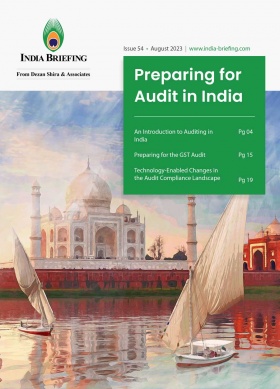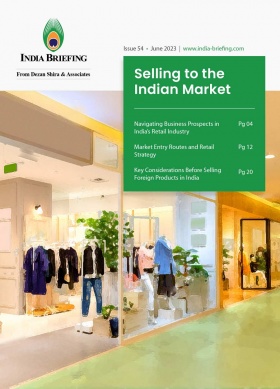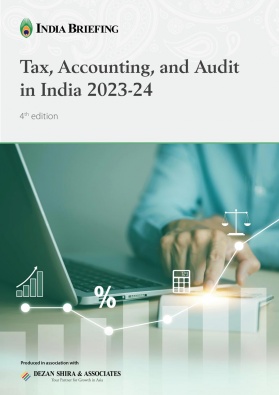India Simplifies GST Refund of Exports Remittances in Special Rupee Vostro Accounts
Exporters in India will gain from the GST Council’s clear guidance on Special Rupee Vostro Accounts (SRVA) remittances, easing GST refund procedures in Special Economic Zones (SEZs). The ability for exporters to claim IGST refunds on supplies to SEZ units is expected to unblock working capital. These changes will foster business confidence and boost India’s export trade and related economic activities within SEZs.
In a significant development, India’s Goods and Services Tax (GST) Council has issued recommendations aimed at streamlining the process of GST refunds for exporters. These recommendations provide much-needed clarity on the classification of remittances received in Special Rupee Vostro Accounts (SRVAs), offering relief to exporters whose refunds were delayed due to disputes regarding this particular aspect.
SRVAs, where foreign entities hold funds in Indian rupees, have gained prominence, especially in trade agreements like the rupee-ruble trade between India and Russia. When Indian importers need to make payments to foreign traders in rupees, these amounts are credited to SRVAs. Conversely, when Indian exporters need to receive payments for their goods or services, the SRVA is debited, and the funds are credited to the exporter’s account. Currently, SRVAs are allowed with 22 countries.
Furthermore, exporters can now claim IGST refunds on supplies to Special Economic Zone (SEZ) units. These moves are expected to unblock working capital for businesses engaged in international trade.
What were the challenges with remittances to vostro accounts?
Under the GST regime, exports of goods or services are classified as zero-rated supplies, implying that they are exempt from GST. However, to be eligible for a GST refund, the supply of services by an entity must meet the criteria to qualify as an export of services.
The problem that exporters faced in this context was related to remittances received in SRVAs. These Vostro accounts, particularly the SRVAs, deal in Indian rupees (INR) rather than foreign exchange (forex). Exporters who received payments through these INR Vostro accounts encountered difficulties when trying to claim GST refunds. The absence of clarity on whether these INR transactions qualified as exports created disputes and hindered the refund process. This ambiguity was a significant challenge that exporters grappled with, making it vital for the GST Council to provide a clear stance to resolve the issue and streamline the refund process.
Recent clarification on vostro account remittances qualifying as export of services
The GST Council has brought an end to long-standing disputes regarding GST refunds by providing clarity on remittances received in SRVAs. The Council clarified that remittances received in the Special INR Vostro account, as allowed by the RBI, will now qualify as export of services. This definitive stance resolves ambiguities surrounding the classification of these remittances and streamlines the process, making it significantly easier for exporters to obtain GST refunds. With this development, exporters can expect a smoother experience in claiming their refunds, marking a positive turn for India’s export businesses.
Simplifying trade from SEZs and eliminating GST ambiguities
Previously, there existed a considerable degree of ambiguity concerning the ability to claim a refund for GST payments made on supplies by domestic suppliers to SEZs. This uncertainty raised questions and concerns about the financial implications for businesses engaged in SEZ transactions.
Addressing the complexities surrounding supplies to special economic zones, the GST Council recommended amending a notification retrospectively (No. 1/2023-Integrated Tax dated July 31, 2023, effective from October 1, 2023), allowing domestic suppliers to SEZ units the opportunity to claim a refund for the integrated tax they have paid. This amendment provides much-needed clarity, ensuring that domestic suppliers engaged with SEZs can confidently pursue GST refunds on their integrated tax payments. This move is expected to foster smoother financial transactions, promote business confidence, and bolster the growth of economic activities within SEZs.
Notably, these changes won’t apply to commodities, such as pan masala, tobacco, gutkha, and others.
About Us
India Briefing is produced by Dezan Shira & Associates. The firm assists foreign investors throughout Asia from offices across the world, including in Delhi and Mumbai. Readers may write to india@dezshira.com for more support on doing business in India.
We also maintain offices or have alliance partners assisting foreign investors in Indonesia, Singapore, Vietnam, Philippines, Malaysia, Thailand, Italy, Germany, and the United States, in addition to practices in Bangladesh and Russia.
- Previous Article Manufacturing Consumer Durables in India: Changes to the White Goods PLI Scheme
- Next Article Understanding the Global Biofuel Alliance and India’s Role Within It








